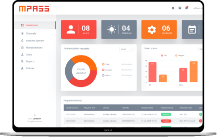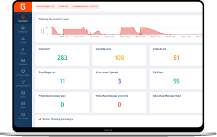Juice Jacking and charging in public places
Have you ever heard about juice jacking attack? what is it? how it’s happened? and how to protect from it?
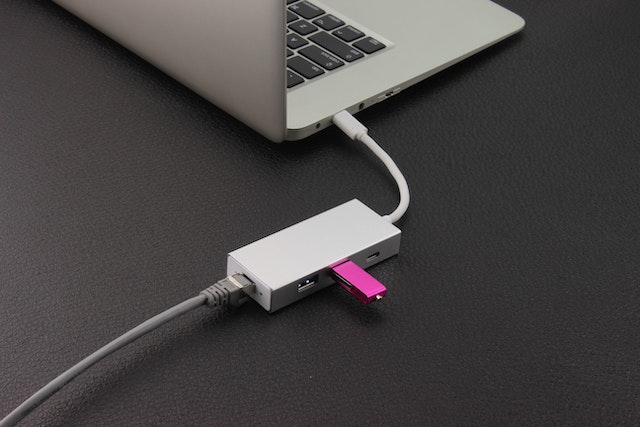
A shared scenario between many is being in public with a dying mobile device, franticly looking for a charger. When coincidently you find a free charging station calling out your name. You find a solution, but have you ever thought about the risks of using these public charging stations?
The accessibility of these public USB charging stations is convenient but connecting your device to one can put you in a vulnerable position. With just plugging in your smartphone or laptop, you’re potentially opening up an opportunity for a threat actor to steal data or install malware all without your knowledge. This is known as Juice Jacking.
Unfortunately, many are unaware of this type of cyberattack and its associated threats. So, let us dive in to understand the risks of using public USB charging stations.
What is Juice Jacking?
Juice Jacking is “a type of cyber-attack involving a charging port that doubles as a data connection, typically over USB. This often involves either installing malware or surreptitiously copying sensitive data from a smartphone, tablet, or other computer device”. So, as soon as your phone connects to another device, it forms a trusted relationship and pairs with it. Meaning the two devices are enabled to exchange data. So, while charging, the USB cord creates a path into your device that a cybercriminal could exploit. And recently, cybersecurity experts and the FBI have been informing the public of the potential risks of these stations, especially during the holiday season.

With borders opening up and many returning to traveling, the possibility of one being put in a situation where they’re in need of a charger is high. Now, these USB charging stations can be found in airports, malls, and even hotels, and some of these stations may have been compromised by a cybercriminal. But with almost 90% of people experiencing “Low battery anxiety” when their phone battery is less than 20%, this results in a person most likely using the station. Cybercriminals are aware of this, which is they infect USB cables causing two main threats to the victim’s device.
Types of Juice Jacking
–First is malware installation. There are times where an individual may connect their mobile device to a malware–infected USB charging port without realizing. Once the device is connected, the cybercriminal can install adware, spyware, trojans, or in some cases ransomware to the victim’s device without their knowledge. And according to a USB threat report by Honeywell, the rate of malwares transmitted via USB devices climbed from 19% in 2019 to 37% in 2020. Unfortunately, malwares can be difficult to detect, once within the system it disguises itself as a harmless function. But a way to identify if you’ve been infected is when you notice random notifications popping up on your device or if your device is losing battery quickly.
-Second is data theft. A cybercriminal could grant himself access to a phone once connected to a compromised USB cable, and this connection is only visible to the power provider which is the criminal. Meaning, as you’re charging your device, your private data is being transferred to the criminal’s device. Hackers are well aware that our mobile devices contain a plethora of personal information which they can benefit from.
How to Protect yourself
– The best thing to do is to avoid using these public USB charging stations altogether. But in the cases where you’re in critical need of a charger, then use an AC socket plug to charge your device.
– Check that your data-transfer feature is disabled in the settings on your device before connecting to any USB cable.
– Invest in a power bank! They are convenient and a reliable source of power for your device.
– Use a USB passthrough device. It allows for power to pass through but deactivates the data pin on the USB cable, reassuring the user that it’s only charging the device without any data being unknowingly transferred.
In Conclusion
The need for your phone or tablet to be running all the time has become a prime need for individuals. This means you may run out of battery any second while you’re out but that does not justify you connecting your device to a random USB charging station. We truly don’t know as to what the USB cable is connected to, and it may be connected to a threatening individual. The risks associated with these stations are severe. So be smart and bring your own source of power to avoid being a victim to data theft or malware.
Also Read: Mobile Malware: 3 common threats
Be aware and stay safe!
Share this article:
Popular

Keeping Our Kids Safe Online
A Guide For Keeping Your Kids Safe Online Parents and all who are concerned about the well-being of our young kids in this digital world. Today we will discuss a topic of utmost importance: digital safety for kids. Yes, the Internet can be a very dangerous place for our young kids , especially with the spread of phishing scams. So, let us dive deeper and present to you, in this comprehensive article, a comprehensive guide on digital safety for kids. What every parent needs to pay attention to. Internet risks for kids: The internet has become a big part of ...
17th Jul 2024
Could you be hacked through Slack?
Could you be hacked through Slack? The usage of collaboration platforms such as Microsoft Teams and Slack has significantly increased, with nearly 80% of employees utilizing them. These platforms are designed to be convenient and easily manageable for daily conversations within organizations. However, what makes them easy and convenient also renders them vulnerable to cyber threats and attacks. In 2021, for instance, 780 gigabytes of data from the gaming giant Electronic Arts (EA) were breached through Slack! During the same year, a security vulnerability in Microsoft Teams was exploited to launch a widespread cyber attack on ...
12th Jun 2024
Tips To Be Cyber Protected While Traveling
Goodbye worry! A safe journey in the digital world With all the modern wonders of the digital world, we trust communication technologies on our journeys. There is no doubt that the travel experience is always more beautiful and enjoyable, but it can also pose a range of risks, especially when it comes to cybersecurity. Travelers may fall victim to phishing, Wi-Fi network spying, and theft of their personal data, which can make their journey filled with worries and tension. With the increasing prevalence of cyber threats, it is essential for travelers to follow some guidelines to protect their devices and ...
1st Apr 2024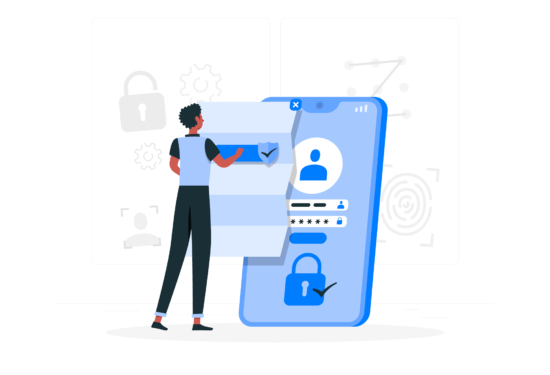
Push Authentication: A New Era in Multi-Factor Authentication
Want To Say Goodbye To Passwords and OTP Codes? Discover Push Authentication! It is easy for your password to be compromised through phishing attacks, even if it meets the cybersecurity strong password standards and is difficult to predict So we must get to know the technique of Push based Authentication. Some may recommend that you use Multi-Factor Authentication (MFA) to increase your security. Multi-Factor Authentication (MFA): MFA is the process of logging into your account through multiple steps. It requires you to enter more information, not just your password. But there is another obstacle that arises when using such ...
14th Feb 2024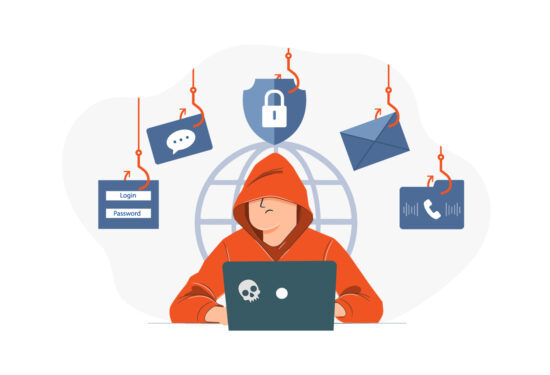
The Difference Between Phishing Attacks
The Difference Between Phishing Attacks Phishing attacks are harmful attacks used by criminals to steal personal and financial information from individuals and businesses. Attacks on individuals and businesses are becoming more common as we use the internet and technology more often in our daily lives. Phishing attacks involve the use of dishonesty and fraudulent methods to fool consumers into believing they are interacting with the trustworthiness of an unsuspecting destination, such as banks, email companies, or social media platforms. But what is the difference between phishing attacks? How can individuals and organizations protect themselves from such attacks? That is what ...
17th Jul 2023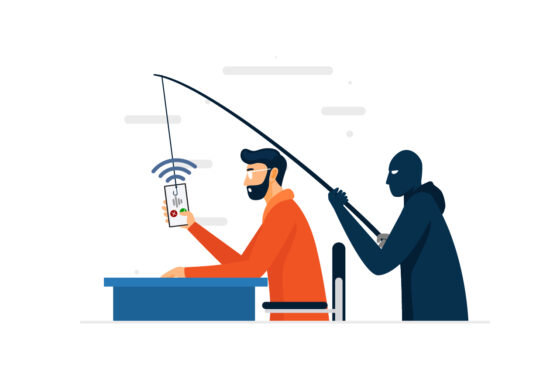
Understanding of the Vishing Meaning
Understanding of the Vishing Meaning Vishing, a combination of “voice” and “phishing,” is a sophisticated form of cybercrime that exploits voice communication to trick individuals and extract sensitive information. In this comprehensive guide, we will explore the meaning of it, the dangers associated with it, and effective methods to protect yourself against these malicious attacks. What is Vishing meaning? Vishing refers to the fraudulent practice of using telephone services to trick individuals into revealing personal and financial information. Scammers often pose as trusted organizations or individuals to gain their victims’ trust. By using social engineering tactics and manipulating ...
5th Jul 2023
How could Artificial Intelligence tools threaten cybersecurity
How could Artificial Intelligence tools threaten cybersecurity? As Artificial Intelligence Tools become more sophisticated, they can be used to launch cyber attacks that are more complex and difficult to detect. In this article, we will explore how AI tools could threaten cybersecurity and what measures can be taken to mitigate these threats. Artificial Intelligence (AI) became popular today, and it is one of the most important terminologies in our current era, though it has been around since the 1950s. AI relies on the development of systems and technologies that help to do tasks by the simulation of human intelligence ...
11th May 2023
Cerebra is participating at GISEC 2023
We are thrilled to announce that we are going to GISEC 2023 and would like you to join us! Visit Cerebra at GISEC 2023 Hall #4 stand SP62 in Dubai World Trade Center from 14-16 March. GISEC Global is the leading gathering ground for the cybersecurity community worldwide. Top cybersecurity enterprises from 40 countries, CISOs from major corporations across the Middle East, Africa & Asia, government dignitaries and cyber leaders, regional and international innovators, and global experts collaborated to lead cybersecurity transformations across sectors and nations decisively. Get a chance to preview our latest Cybersecurity products: PhishGuard is the Phishing stimulations solution that raises the employees cybersecurity awareness ...
13th Mar 2023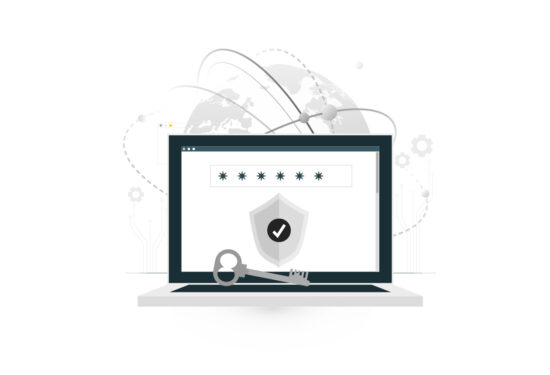
6 Tips to create a strong password easily!
Create a strong password easily! Today it’s very important to everyone who have an account either on social media or any other websites or services to Create a strong password, because you have to treat your password as your best stuff’s and protect it from others. Learn now the easiest and best tips you have to follow to make a strong password.. What is Password? A password is a string of characters that provides access to a digital system or service. It is a crucial security measure that helps to protect sensitive information from unauthorized access. Passwords can be as simple as a word ...
1st Feb 2023

